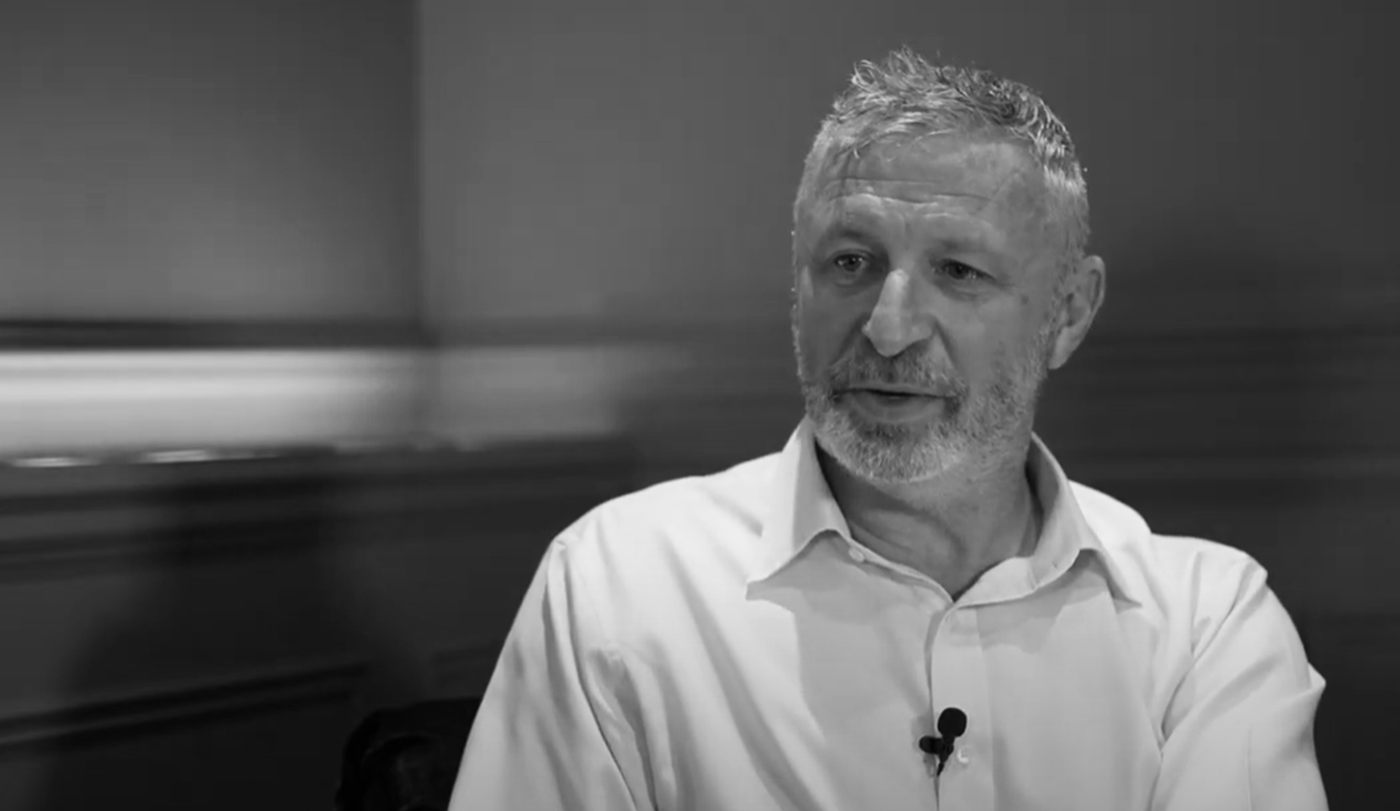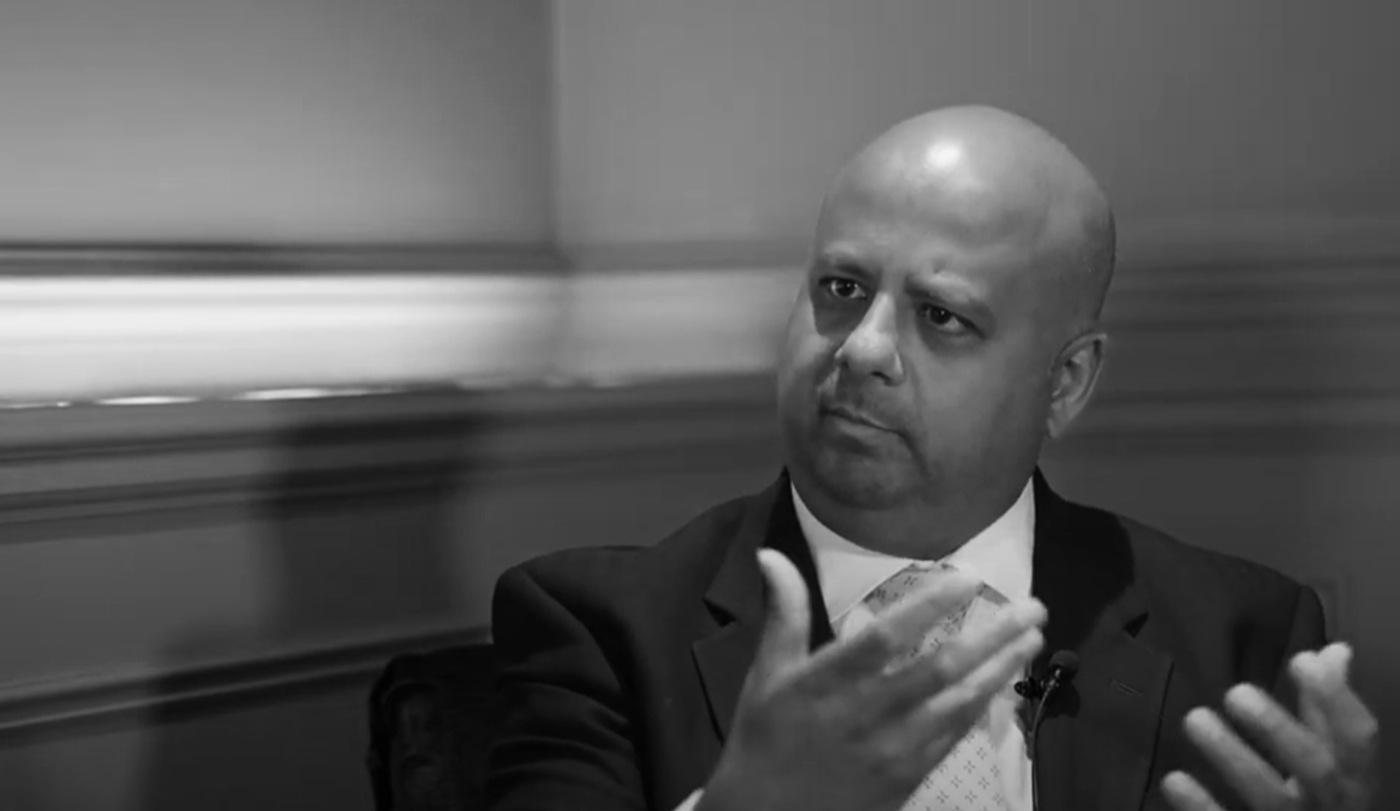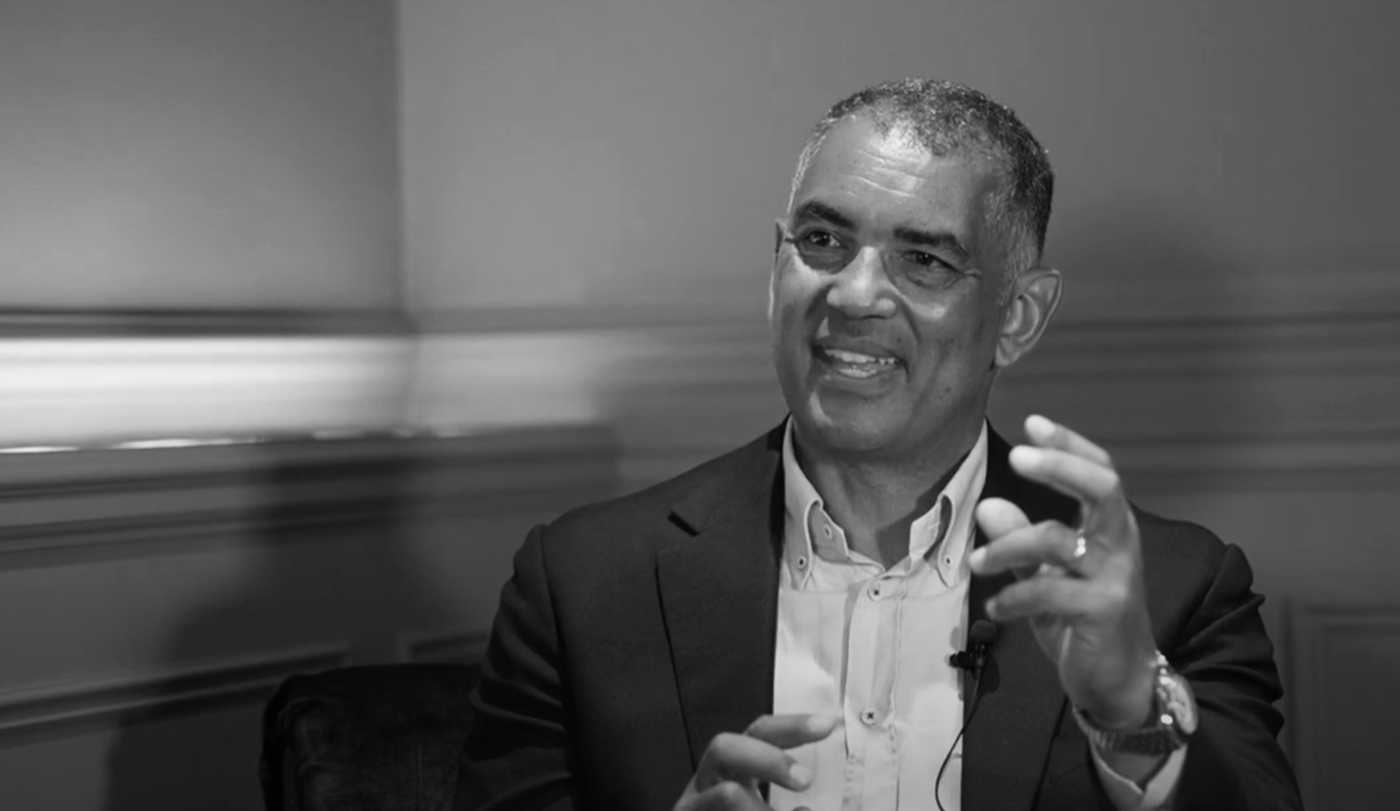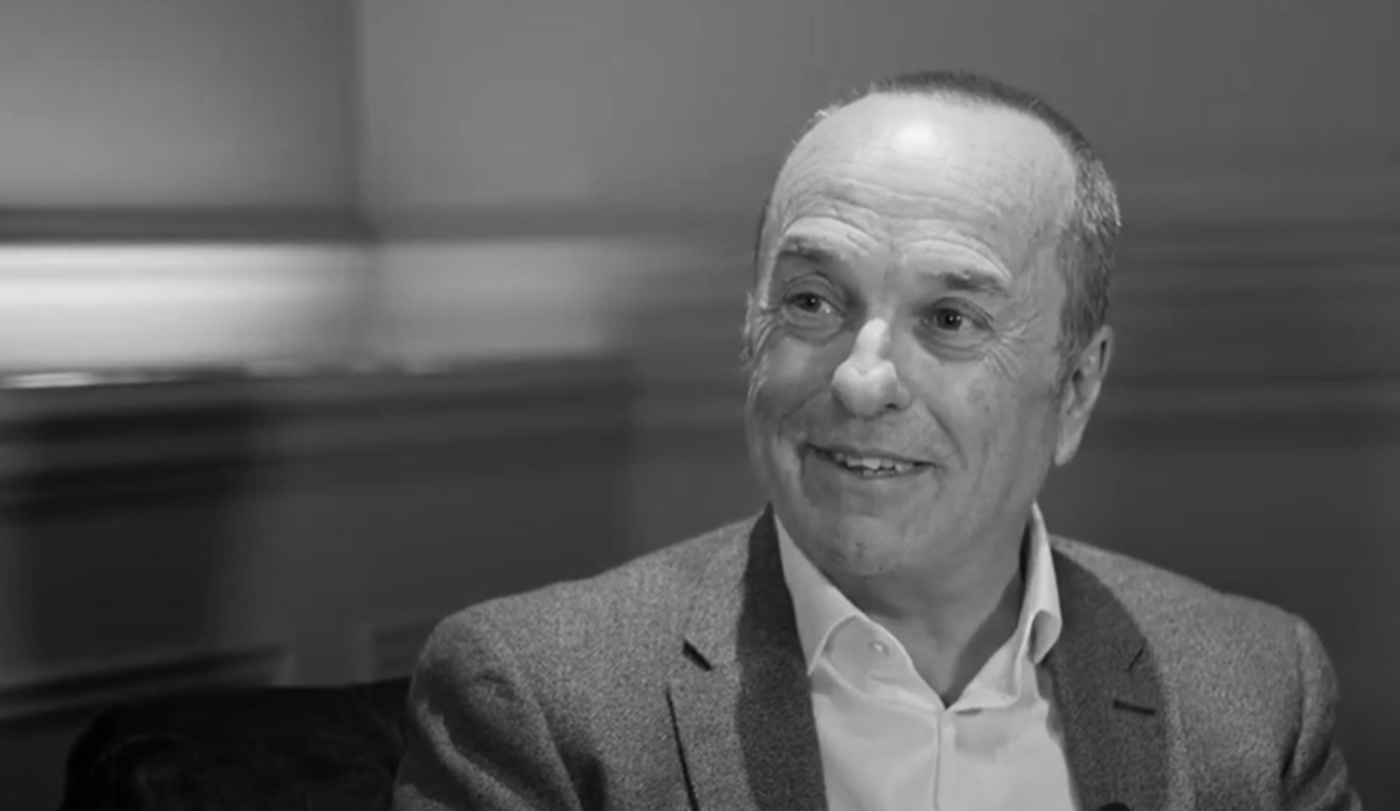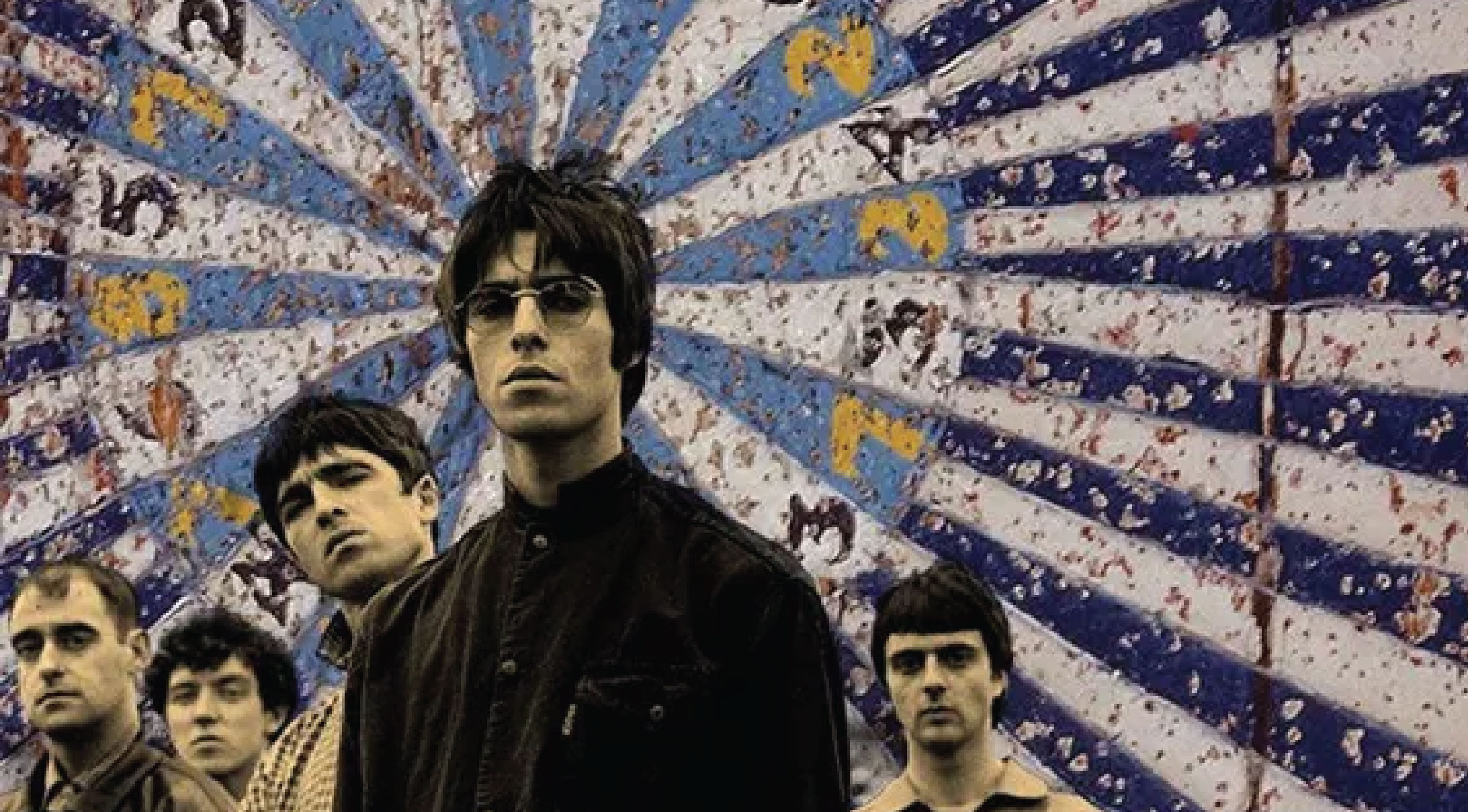On looking at assets classes with fresh eyes, doing your own research and Roman round the City
In our regular video series, we interview the wealth sector’s key decision-makers to discover how they think about life, both within the world of investment and beyond it; what brought them into the business and what keeps them here; and what makes them and their companies tick
The importance of doing your own research rather than simply taking someone else’s word for what might constitute a good investment is the big life-lesson Ben Kumar, head of equity strategy at 7IM, takes from a cautionary tale from a few years into his career.
“One day, a colleague came rushing back from a conference and said, I just saw this manager and they say that silver is the place to be,” he tells Wealthwise editorial director Julian Marr in our latest Choice Words episode. “And I thought, Wow, this colleague knows what he’s talking about, and he’s talked to people who know what they are talking about!
“So, through my ISA, I put a bit of money – not a lot of money – into silver and then, two weeks later, the same colleague came back in, having been to a different conference, and said about a different manager, Ye-ess – he thinks the silver thing is overblown!
“And I realised, Ah, right – the problem is, I haven’t done my own research. I have listened to someone else and done something on the back of it – and that is not how you should be investing money. You need to know why you are doing something. You need to know in your heart you believe in it – not just based on what someone else is doing. Oh, and the money went down to almost nothing – silver pretty much halved in those two weeks!”
‘US exceptionalism’
Earlier on, in the context of what most interests him about the investment outlook, Kumar highlights the question of whether the market’s fascination with ‘US exceptionalism’ might be starting to shift. “And it is interesting because we have seen this before,” he explains. “For a number of years, following the 2000 tech boom, the US lagged the rest of the world.
“Why would you invest in the US when there was so much going on in, say, China and the UK? The question is whether it is going to happen again – and, given the US is now such a big part of people’s portfolios, what does that mean? That is fascinating – although I think it is probably still a bit early to completely write the US off.”
As an industry, we have to find a way to get better at knowing where we are investing and why.”
As for what worries him, Kumar picks out “the laziness” with which the investment sector can apply old terms –not least, ‘emerging markets’. “Are you kidding me!” he laughs. “Have you been to South Korea? South Korea is not an emerging market. South Korea has higher GDP per capita than the UK. If you fly into the airport in Seoul, you do not think you are flying into an emerging market country!
“China as well, I would suggest – given the amount we are worried about it – is not a throwaway nation anymore. So lazily grouping countries into the emerging markets is something that has to stop – and, as an industry, we have to find a way to get better at knowing where we are investing and why.”
All about potential
In a lively conversation that also takes in the importance of liquidity in giving investors the leeway to correct mistakes, the need for alternatives to do something genuinely different in a portfolio and an open offer to accompany him on a guided walking tour of the City of London’s hidden Roman walls, Kumar is asked what advice he would have given his younger self on his first day at work.
“I think it took me too long to realise I hadn’t been hired for what I knew,” he replies. “And I think that is true of anyone on their first day at work – you are not hired for what you know, you are hired for your potential.
“Lots of young people spend a lot of time pretending they know things but, the minute I started admitting I didn’t know things, I started learning – just like that. So I would have told myself, Admit how little you know – far sooner and far more honestly and with a smile – and you will learn a lot quicker.”
A full transcript of this episode can be found after this box while you can view the whole video by clicking on the picture above. To jump to a specific question, just click on the relevant timecode:
00.00: What excites you about the current investment outlook? What worries you?
02.05: What do you most look for in an individual investment? What constitute ‘red flags’?
03.24: To what degree should professional investors be thinking beyond so-called ‘traditional’ investments? Towards what?
04.40: What is your approach to client communications?
05.55: What was your path into investment – and, if you had not taken it, what do you think you would be doing now?
07.15: What is the biggest investment mistake you are prepared to admit to – and what did you learn from it?
08.40: Outside of work, what is the strangest thing you have ever seen or done?
09.52: What are your best and worst-case scenarios for the future of wealth in the UK?
11.27: What advice would you have given your younger self on your first day in this business??
12.24: Two ‘Choice Words’ recommendations, please – one a book; one a free choice?
Transcript of ‘Choice Words’ Episode 18:
Ben Kumar, with Julian Marr
JM: Well, hello and welcome to another edition of ‘Choice Words’, where we get to talk to the great and the good of fund selection and fund research. I am Julian Marr, editorial director of Wealthwise, and today I am delighted to be talking to Ben Kumar, who is head of equity strategy at 7IM. Hello, Ben.
BK: Hello.
JM: Let’s start with a nice, easy question, given the current environment – what most interests you or excites you about the investment outlook? What gives you pause for thought?
BK: The most interesting thing, I think, is the question of whether ‘US exceptionalism’ – the dominance of the US market – is starting to shift. And it is interesting because we have seen this before – following the 2000 tech boom for six, seven, eight, nine, 10, 11, years, the US lagged the rest of the world. Why would you invest in the US when there was so much going on in, say, China and the UK?
The question is whether it is going to happen again – and, given the US is now such a big part of people’s portfolios, what does that mean? That is fascinating – but I think it is probably still a bit early to completely write the US off.
JM: On the other side – and I am sorry to bring things down – what worries you?
BK: The thing that worries me perhaps the most – in all of investing – is the laziness with which we are applying old terms – the ‘emerging markets’? Are you kidding me! Have you been to South Korea? South Korea is not an emerging market. South Korea has higher GDP per capita than the UK. If you fly into the airport in Seoul, you do not think you are flying into an emerging market country!
China as well, I would probably suggest – given the amount we are worried about it – is not a throwaway nation anymore. So lazily grouping countries into the emerging markets is something that has to stop – and, as an industry, we have to find a way to get better at knowing where we are investing and why.
Know your risk
JM: Excellent – I love that. Switching from the big picture to individual investments, what do you most look for in a potential investment – and what would you consider a major ‘red flag’?
BK: Lots of investments have great characteristics and drawbacks too – that’s the point. That’s why risk exists. You have to be taking a risk somewhere – however, you need to know what risk you’re taking. The big drawback – let’s start there – is, I think, liquidity. Are you doing something you are not going to be able to undo?
The opportunity may look great but, actually, it may be really difficult to get out of. If there is liquidity, then actually any mistakes you make can be corrected. When you can’t correct your mistakes – when you have that permanent impairment of capital that Warren Buffett goes on about – that is a problem.
What looks interesting? Genuinely, I think it depends on the time horizon, the opportunities in front of you and how flexible you are willing to be. So, at the moment, there is a lot of interest in nuclear – but what does that mean? There are only a couple of uranium miners out there and there are only a couple of companies that maybe can do nuclear power – and many of them are state-owned. So you have to think a bit creatively. You have to look at the opportunities and maybe be prepared to go somewhere you haven’t been before.
Merger-arbitrage angle
JM: It is interesting you mention liquidity, flexibility and timeframe because, obviously, there is an increasing focus on alternative investments. To what degree do you think professional investors should be thinking more about – I should do air quotes here but I refuse to! – ‘alternatives’?
BK: Again, it depends what you mean by ‘alternatives’ …
JM: It is your video – you can choose!
BK: I think there are a lot of alternatives that are basically either bonds or equities dressed up in a fancy gown. I have no interest in them – I don’t want that. There are alternative investments that take different risks – that pay you for taking a different risk – for example, one thing we like is merger-arbitrage strategies. So a deal is announced but there is that regulatory risk – is it going to get signed off by the Competition and Markets Authority or equivalent? And will that last little £2 or £3 close?
Getting paid for that – nothing to do with growth, nothing to do with interest rates, everything to do with, Is this going to get through the legal system? – is completely sideways risk to what you are taking elsewhere. So I think they do have a place – but they’ve got to be liquid, they’ve got to be well understood and they’ve got to be doing something different to the rest of your portfolio. Else, what’s the point?
Entertainment game
JM: Fair enough. Let’s move on to client comms now – what informs your approach to client communications and, to show my own thinking here, how do you go about keeping investors along on the whole journey so they do not come in too late, leave too early and therefore miss out on all the good stuff?
BK: I am very lucky in that sort of my guru of client communications is [recent Choice Words guest] Justin Urquhart Stewart – you know, I came to my career under him and he has a few things he says on this and they all ring true. One is that we are, it has to be remembered, partly in the entertainment game and another is it is a privilege to look after other people’s money. And when you put those two together – that’s the job. You need to be in front of people when times are good and make sure they are excited about what they own.
Remember that they own things as well – I think it’s very easy to get lost from a portfolio that looks very boring but you actually own a company that is growing and in the world. Entertain them about that and then encourage them, be there for them and listen to them – above all – when things maybe aren’t so good. I think there are a lot of investment managers out there who get so caught up in the markets, they forget whose money they are investing – and it is our clients’ money.
What did I miss?
JM: Excellent. A more personal question now. You touched on it very briefly when you mentioned Justin, but what was your path into investment and then, in an alternative universe, what do you think you would be doing otherwise?
BK: It’s a great question. I did a couple of weeks’ work experience in 2008 at Seven Investment Management but I was a pretty clueless student – so clueless that I didn’t actually know 2008 was a pretty important time in the financial markets! It was only two years later, when I returned to Seven, that I realised there had been a financial crisis going on that I had not noticed.
So I did another three months of work experience and they basically said, Would you like to stay? We were a very, very small company – a tiny investment team with lots of people very senior to me – and, you know, no grad programme or anything. I just worked – asked questions, knew that I didn’t know very much and learned over time.
What would I be doing now instead? I really like communication and writing so I like to think it would be something in that area, and that I wouldn’t have got sucked into the world of mass consultancy and joining graduate schemes. So, hopefully, something in writing and comms.
Silver service
JM: It’s a vocation – we do it for the love, not the money! What is the biggest investment mistake – I was going to say that you have ever made but that you are prepared to admit to? And did you learn anything from it?
BK: I think the biggest mistake I ever made was after a colleague came rushing back from a conference – this is when I was maybe three or four years into my career – and said, I just saw this manager and they say that silver is the place to be. And I thought, Wow, this colleague knows what he’s talking about, and he’s talked to people who know what they are talking about!
So, in my ISA, I put a bit of money – not a lot of money – into silver and then, two weeks later, the same colleague came back in, having been to a different conference, and said about a different manager, Ye-ess – he thinks the silver thing is overblown!
And I thought, Ah, right – the problem is, I haven’t done my own research. I have listened to someone else and done something on the back of it – and that is not how you should be investing money. You need to know why you are doing something. You need to know in your heart you believe in it – not just based on what someone else is doing. Oh, and the money went down to almost nothing – silver pretty much halved in those two weeks!
JM: OK – that is interesting and probably very good advice to me. Whenever I am chairing a conference, I meet 10 people absolutely convinced their way is the way to go and I have to give myself at least a month’s cooling-off period. Each time you go, Oh this is brilliant! Again, though, maybe that is one of the benefits of not having any money to invest as you cannot get sucked in! That is glass half-full, isn’t it!

Shutterstock
Lot of lolly
JM: Odd question next but, outside of work, what is the strangest thing you have ever seen or done?
BK: I think the strangest thing I have ever seen was when my wife and I were on a long-distance coach in Peru, going from one remote place to another, and we stopped at an even more remote bus station and a lady brought her alpaca onto the coach. I don’t think I have ever seen anything weirder than an alpaca quietly standing at the back of a bus for four hours. Weirdest thing I have ever done, probably, is eat 17 ice lollies in 45 minutes to win a bet.
JM: OK, good – I’m glad it was a bet. And what I like about that story is, if anyone watches a number of these, they must think that is a bizarre question to ask – but the absolute founding father of the ‘strangest thing’ question is, I am pretty sure, a Rich Hall routine where he goes through all the weird things he has seen in the world before saying, I have never seen anything like what I saw the night I rode the Greyhound bus in America.
And now you have actually gone back to that – so that is a neat circularity! It may be the answer I have been looking for – in which case you may have killed the question, which a lot of future interviewees will be thanking you for!
UK should have UK focus
JM: More grown-up question then, what would you say are the best and the worst-case scenarios for the future of UK wealth?
BK: The best-case scenario is the UK focuses on the UK. Whether it is pension funds being amalgamated or all these good things we are now hearing about, an investment pours into what are some really interesting industries. For a decade now, I have despaired of watching brilliant graduates of UK universities either flee to Silicon Valley to go and make money or start a little business here – which then gets bought out by an American firm.
Doing it in the UK is massively, massively important. And getting people – you know, retail investors, people in the street – invested in companies that are around the corner from them – I think that is a massive opportunity and we should really get excited about it.
JM: Yes – and the flipside of that, I suppose, is that just doesn’t happen.
BK: I can even dial it up slightly more: the flipside of that is the UK or the London Stock Exchange keeps trying to be a global marketplace. I look at places like Finland or France or Germany – they don’t care if they don’t win the Chinese listing. They are about raising money in Finland or France or Germany for businesses there and building them there. Winning Shein or Teemu or whatever just isn’t the game and I think we’ve lost something there.
Hired for potential
JM: I like your manifesto and I will vote for it! This next question is actually about advice you would have given your younger self on your first day of work but this is interesting. Presumably, if you had come back and said, Don’t worry, Ben – 2008 will be a dreadful time but it will all be OK – that could have completely changed your view and put you off joining the business! So let’s set that aside and, without getting into a time-loop, what advice would you have given yourself on your first day at work?
BK: I think it took me too long to realise I hadn’t been hired for what I knew. And I think that is true of anyone who is a graduate on their first day at work – you are not hired for what you know, you are hired for your potential. Lots of young people spend a lot of time pretending they know things but, the minute I started admitting I didn’t know things, I started learning – just like that. So I would have told myself, Admit how little you know – far sooner and far more honestly and with a smile – and you will learn a lot quicker.
Roman round the City
JM: That is great answer. Last question then, as we have zipped through all of these, we call this ‘Choice Words’ so let’s now look for some personal choices or recommendations. Normally, we ask for a book – it does not have to be investment-related, though it can be – and one is a free hit. So anything you think our viewer should look out for.
BK: OK. The book – and I only read this last year on the recommendation of The Rest Is History podcast – is My Early Life by Winston Churchill. Honestly – you know, Churchill’s war record has kind of taken over the whole man but he is a fantastic writer and his early life was absolutely mad! He was all over the place, doing all sorts of crazy things – it was like an adventure story, but it was real. Brilliant book – blew me away.
The other thing I would recommend – and this is obviously plugging me a bit – is come and see me in London, in the office, and we will do an hour’s walk and I will show you all of the bits of the old Roman walls that still exist around the City of London. Including – and this is not a spoiler, more a warning – in a dank underground carpark, where there is a 20-foot long bit of Roman wall that’s been there for over 1,000 years. That is a really good recommendation – even if you don’t do it with me. The history of London in the City – amazing.
JM: I was wondering how you were going to turn that around – so come and see me in the office and I will take you for an hour’s walk around 7IM! I’m sure it is lovely but that might be a stretch! So that is really interesting. Very personalised. Well done – great Choice Words choices and some great answers to so many of my questions. Thank you very much, Ben.
BK: Thank you.
JM: And thank you very much for watching. Please do look out for further Choice Words videos as they are published.


